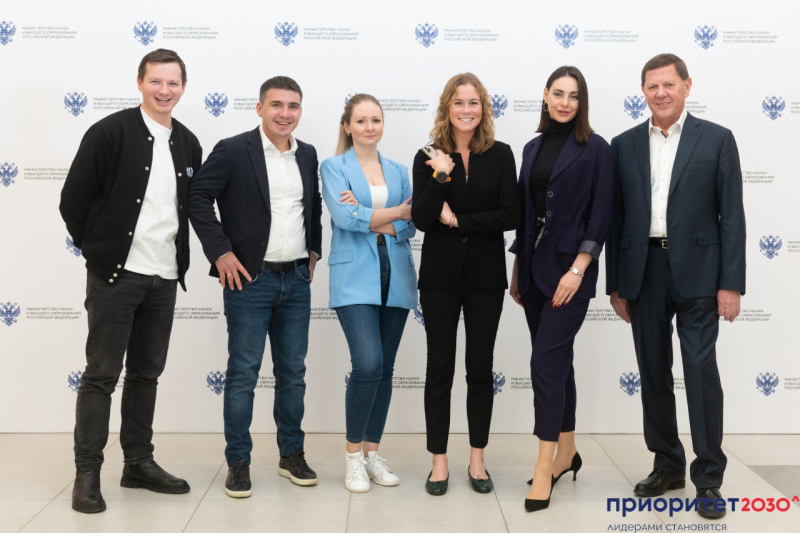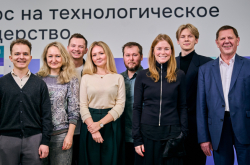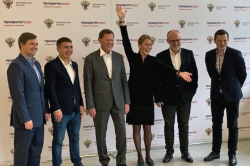ITMO takes part in the research leadership track, within which all winners are divided into three groups, each receiving a different amount of funding. Last year, ITMO made it to the top group, earning a grant of 994 million rubles; this year, the university has retained its position and secured 820 million rubles in funding, to be received by the end of 2023. You can find the full protocol of the Priority 2030 Council meeting here (in Russian).
As part of Priority 2030, ITMO University implements Open-Source University – a development strategy meant to boost scientific progress, ensure a high technology readiness level (TRL) of ITMO’s products, facilitate the customization of the educational process, and promote the synergy of business, science, and education. As noted by Daria Kozlova, ITMO’s First Vice Rector and the head of the Development Strategy, participation in the program has driven the university’s hyperjump in several fields.
“The key outcome of our strategy are transformed teams and PI thinking, which allowed us to increase our TRL: some specialists switched from fundamental research to engineering and applied studies, while others managed to create deeptech technologies at the university. Today, we’re working to turn ITMO into a research and educational corporation based on entrepreneurial thinking, a product-focused approach, interdisciplinary research, and a novel management system,” shares Daria Kozlova.
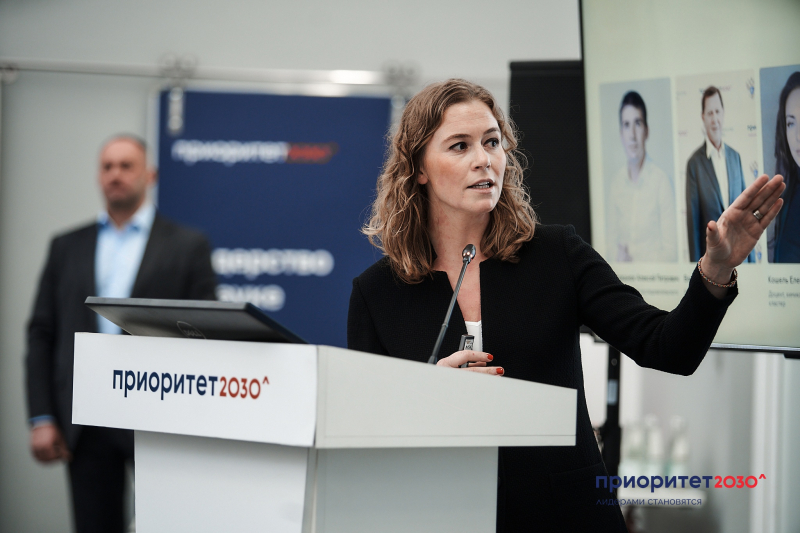
Daria Kozlova, ITMO's First Vice Rector and head of the university's Development Strategy, at the Council meeting. Credit: Sociocenter / vk.com/sociocentr
Emerging trends in AI
The program’s flagship products and projects revolve around the development of artificial intelligence (AI) within all the university’s scientific and educational areas of focus, from chemistry and biology to robotics, urban studies, and materials science. With the help of AI advances, ITMO is developing solutions for both science and business.
For instance, the university has opened a technological testing ground for novel AI-based medical devices – the first unified system of assessment, comparison, and testing that set standards using AutoML and can accelerate procedures by 10-16 times.
ITMO’s Research Center “Strong AI in Industry” offers a wealth of open-source solutions, including GOLEM, a hybrid technology for generating territory development projects, which can be used to create complex models such as graphs, differential equations, etc. All in all, ITMO experts have made eight frameworks available to the public, with over 30,000 downloads on GitHub.
Meanwhile, the market will not be able to produce rapid and efficient innovations unless the existing system of training specialists undergoes changes. In pursuit of this goal, ITMO, in partnership with Napoleon IT, launched a joint Master’s program in machine learning that takes place in the format of a distributed project office and engages students in real-world business cases. Among the program’s key partners are MTS Digital, Sberbank’s AI Lab, Gazprom Neft, Tatneft, VK, Yandex, and others.
On top of that, the university offers two programs certified by AI Alliance Russia, an association that includes the country’s top tech companies.
From fundamental research to finished products
In striving to get its technology to a TRL 7-8, ITMO University already has several projects that go beyond fundamental studies to offer. For example, a research team from the School of Physics and Engineering has presented a new type of wireless chargers – boxes with uniformly distributed magnetic fields that can charge up to three devices simultaneously. Experts from ITMO’s ChemBio Cluster, on the other hand, are developing a setup that can diagnose 16 pathogens for the Russian Federal Medical-Biological Agency. The team not only carries out research activities but has also already presented a finished product and a prototype for their client to scale up the technology and launch the production. Overall, all projects in computational and molecular genetic diagnostics attracted over 200 million rubles in investments.
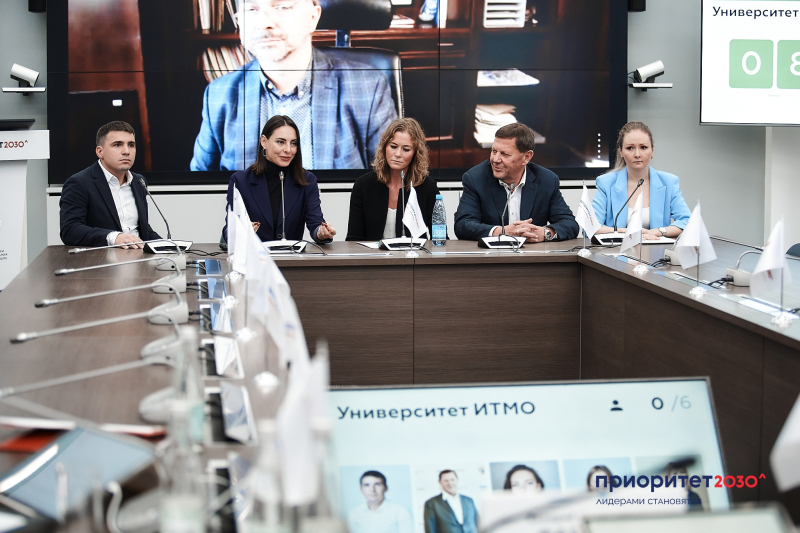
ITMO's team at the meeting of the Priority 2030 Council. Credit: Sociocenter / vk.com/sociocentr
When working on novel quantum amplifiers, ITMO specialists managed to not only develop the associated technology but also establish their own production at the university. The technology is part of Polar Express, a large-scale project for the construction of a transarctic submarine fiber-optic communication line from Murmansk to Vladivostok. According to the project, underwater fiber-optical lines will be laid from the Kola Peninsula to the Kamchatka Peninsula and further to Vladivostok along the Northern Sea Route. The signal will be transmitted via amplifiers. As of now, the university produced 30 devices, which helped cover the distance of over 3,000 kilometers. The project is fully funded by the employer (350 million rubles).
Lots of the university’s projects involve young researchers. For example, more than 80% of specialists on the wireless-charger team are students, and, as a whole, 86% of researchers at the university are at the start of their academic career. At ITMO, Master’s students are given every opportunity to do science, thus students have their first publications in major international journals way before they enter their PhD programs. The number of publications by young researchers at the university has increased by 16% compared to last year.
Transforming education
Oftentimes, novice specialists, who have just received their diplomas, struggle to find a job out of university and even sometimes have to retrain to acquire the sought-after skills. One of the university’s goals is to shorten the time newcomers need to adapt to a new workplace and equip students with future-proof skills and competencies.
That’s why when developing its educational programs and various products, the university relies on, on the one hand, trends in the market and on the other – industrial collaborations. Companies do not solely act as employers but also as partners of educational programs, allowing students to work on industrial cases and then use them for their future theses. Apart from a startup idea, ITMO students can also present an art project as their graduation thesis.
During their studies, students can build their own individual learning tracks under the guidance of mentors, advisors, and specialists from the Student Services Office. They are also free to sign up for additional courses, if needed. Students’ successes go towards a digital diploma for achievement in extracurricular activities, which was first introduced in 2022. The document is not meant to replace the traditional diploma but rather give the graduate an advantage when looking for a job.
You can find ITMO Uniersity’s full presentation here (in Russian).
